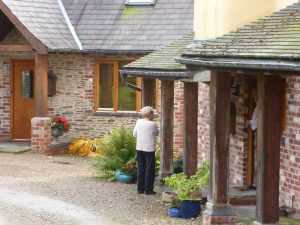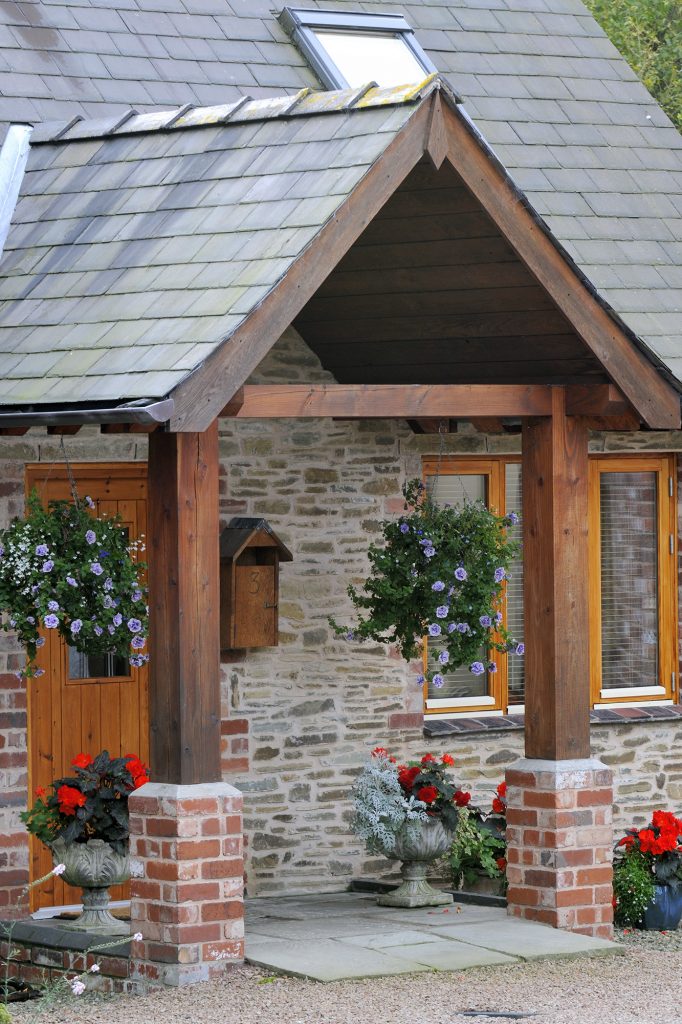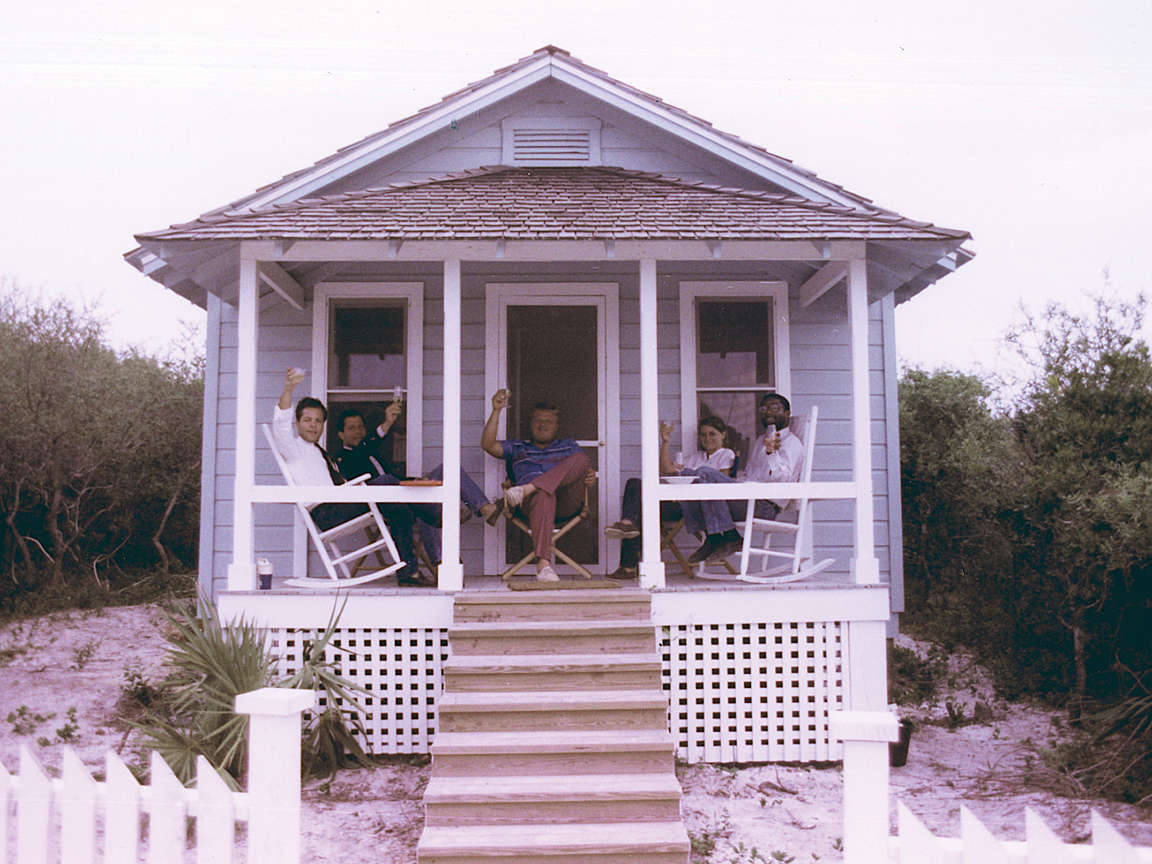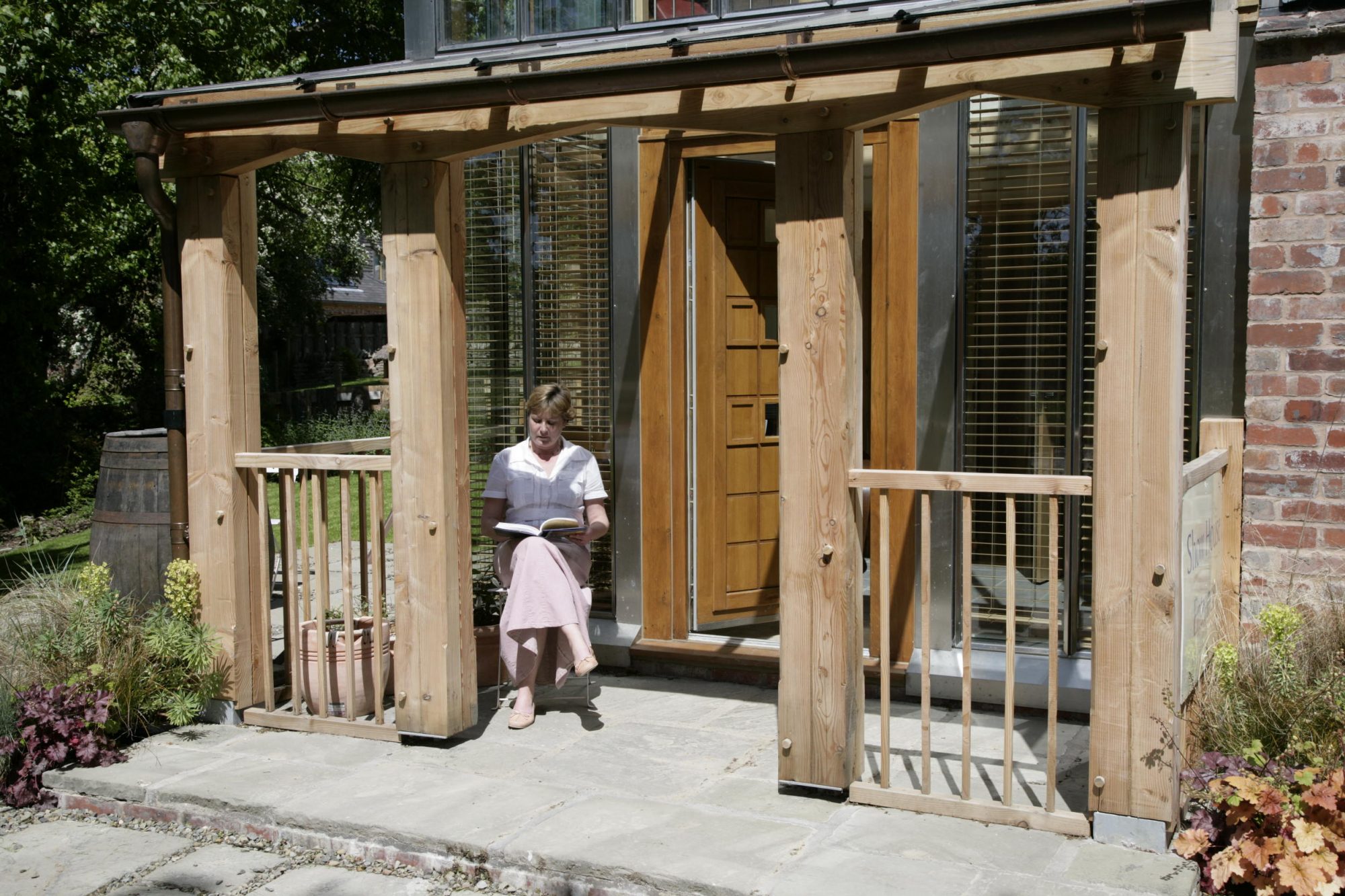The UK is not big on the sort of sprawling veranda-style porches we often see in American films, where people sit and relax – often close enough to the street to connect with the outside world. But even a small amount of “connecting space” will suffice. Porches are a little piece of inside-out space, where the private realm of the household spills out towards the public space.
It’s often a place to park your bike or recycling bins, but it can have more sociable uses!
Famous fans of porches include Andres Duany and Elizabeth Plater-Zyberk, who between them designed the small “people friendly” town of Seaside in Florida, the birthplace of New Urbanism and the setting for the Jim Carey film, “The Truman Show”.
To reduce the use of air conditioning, each home in Seaside had to have a front porch. But Plater-Zyberk explains that planners quickly realized that the porch had other benefits as well. “People would sit on the front porch instead of in the backyard because they could see people coming and going, say hello to their neighbours and have short conversations. Bonds of community were being formed through that brief interaction.”
In brief: porches help apply the community “glue” that makes good neighbourhoods. Being able to pop round to someone’s house and have a quick conversation in the shelter without having to go through the formality of entering the building is very conducive to social interaction.
A porch takes away the unease of having to invite a visitor in if it’s not convenient or we’re not sure how long they’ll stay… This may seem trivial, but short informal interactions like these are what makes a place work.
Porches also flag up what’s going on inside the house without breaching privacy. If all is well, parcels are collected and hanging baskets are watered. If these look neglected, maybe something is wrong.
When talking about his “Pocket Neighborhoods: Creating small-scale community in a large-scale world”, architect and author Ross Chapin tells the story of how lives have even been saved by neighbours calling round after noticing that a person hasn’t been out on their porch recently. Far better this than emergency services turning up days later in response to a distress call…
Porches could be a life saver in other ways too. According to the World Health Organisation: “A large body of research shows that social isolation and loneliness have a serious impact on older people’s longevity, their physical and mental health, and their quality of life. The effect of social isolation and loneliness on mortality has been compared to that of other well-established risk factors for mortality such as smoking, obesity, and physical inactivity.”
Many older people find they can go days on end without speaking to a soul. Being able to strike up an occasional conversation with a friendly neighbour could be a life saver for them.




